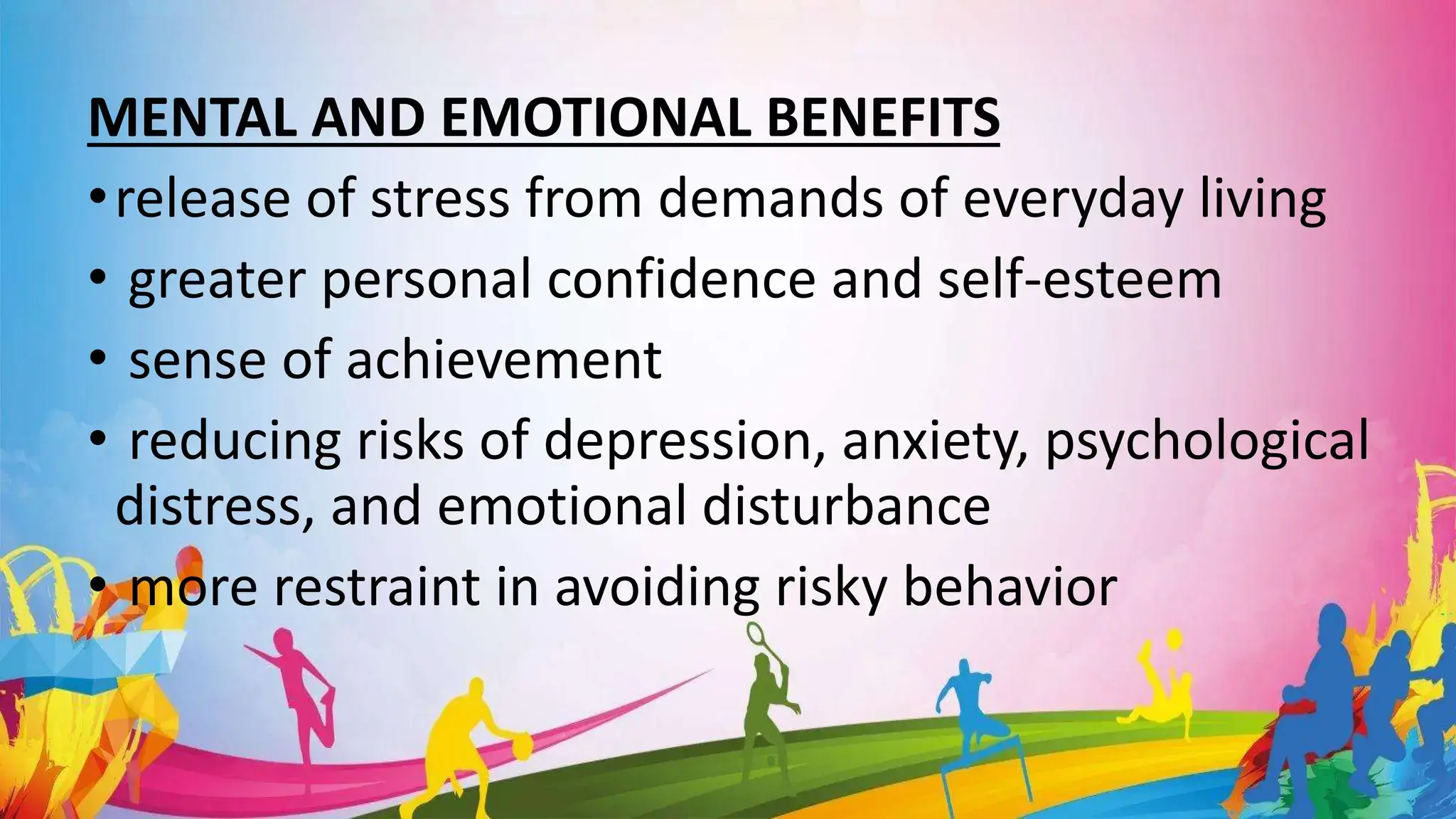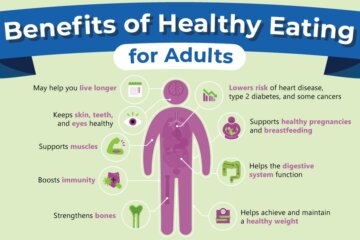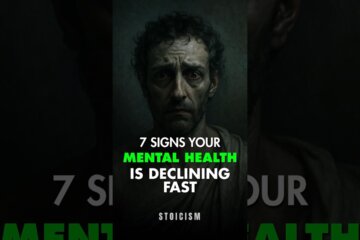“Physical Health Benefits of Recreational Activities”
Have you ever wondered how spending time on fun activities could boost your body’s health? Recreational activities do more than just fill your free time—they can transform your physical well-being.
From improving your heart health to strengthening your muscles, these enjoyable moments hold powerful benefits for your body. Keep reading to discover how simple, playful actions can lead to a healthier, stronger you.
Boosting Cardiovascular Health
Recreational activities play a key role in improving heart health. They help the heart work better and keep blood vessels strong. Regular movement lowers blood pressure and boosts good cholesterol. These benefits protect the heart and make it more efficient. Active hobbies also reduce stress, which affects heart health. Small steps, like walking or cycling, add up for a stronger heart.
How Activities Improve Heart Function
Physical activities make the heart pump blood more strongly. This strengthens the heart muscle over time. The heart beats slower but pumps more blood with each beat. Blood flow to organs and muscles improves. This helps the body get more oxygen and nutrients. Exercises also help blood vessels stay flexible and clear. This lowers the effort needed to circulate blood.
Reducing Risk Of Heart Disease
Regular recreational activities lower the chance of heart problems. They reduce bad cholesterol and raise good cholesterol. This prevents plaque buildup in arteries. Activities help control weight, blood pressure, and blood sugar. These factors are linked to heart disease risk. Being active also lowers inflammation in the body. All these effects work together to protect the heart.
Enhancing Muscle Strength
Recreational activities offer a fun way to enhance muscle strength. These activities involve moving your body in different ways. They challenge your muscles to work harder. This helps muscles grow stronger and healthier. Strong muscles support daily tasks and improve overall fitness.
Building Endurance And Flexibility
Recreational activities like swimming, hiking, and dancing build muscle endurance. Endurance means muscles can work longer without getting tired. These activities also improve flexibility. Flexible muscles move more freely and reduce injury risk. Stretching and varied movements help muscles stay flexible and strong.
Preventing Muscle Loss With Age
Muscle loss is common as people get older. Recreational activities slow down this loss. They keep muscles active and healthy. Regular movement sends signals to the body to maintain muscle mass. This helps older adults stay strong and independent longer.
Improving Respiratory Efficiency
Recreational activities help improve how well your lungs work. Better lung function means your body gets more oxygen. This helps you feel stronger and more energetic. Many physical activities focus on breathing and lung use. This leads to better respiratory efficiency. Your lungs become more effective at taking in oxygen and releasing carbon dioxide.
Increasing Lung Capacity
Regular exercise increases the amount of air your lungs can hold. Activities like swimming, running, and cycling stretch your lungs. This helps your lungs take in more air with each breath. Bigger lung capacity means your body gets oxygen faster. It also helps you stay active longer without feeling tired. Over time, your breathing becomes deeper and easier.
Breathing Techniques In Recreation
Many recreational activities teach you how to breathe properly. Yoga and tai chi focus on slow, deep breaths. This helps calm your mind and improves lung function. Controlled breathing techniques increase oxygen flow to your muscles. They also reduce stress and improve endurance. Practicing these techniques during activities makes your breathing more efficient.
Maintaining Healthy Weight
Maintaining a healthy weight is key to overall well-being. Recreational activities help control weight by using energy and building muscle. Staying active supports your body’s natural balance and improves health. It also lowers the risk of many diseases linked to being overweight. Small, regular activities make a big difference in weight management.
Burning Calories Effectively
Recreational activities burn calories and increase metabolism. Activities like walking, cycling, or swimming use energy and help shed extra pounds. The body keeps burning calories even after exercise ends. Consistent activity helps create a calorie deficit, which is essential for weight loss. Choose enjoyable activities to stay active longer and burn more calories.
Balancing Activity And Nutrition
Weight control depends on both activity and food intake. Eating balanced meals fuels your body for exercise and recovery. Avoiding too many high-calorie foods helps maintain energy balance. Drinking water supports metabolism and reduces hunger. Combining good nutrition with regular activity creates a strong foundation for healthy weight.
Strengthening Immune System
Recreational activities do more than just entertain. They play a key role in building a stronger immune system. A strong immune system helps the body fight off germs and sickness. Regular physical activity keeps the immune system active and ready.
How Exercise Boosts Immunity
Exercise helps the body produce more white blood cells. These cells fight infections and keep you healthy. Physical activity also improves blood circulation. This helps immune cells move quickly to where they are needed. Simple activities like walking or cycling can make a big difference.
Reducing Illness Frequency
People who stay active tend to get sick less often. Exercise lowers the risk of colds and other infections. It also helps the body recover faster from illness. Regular movement strengthens the body’s defense system. This means fewer sick days and more energy for daily life.
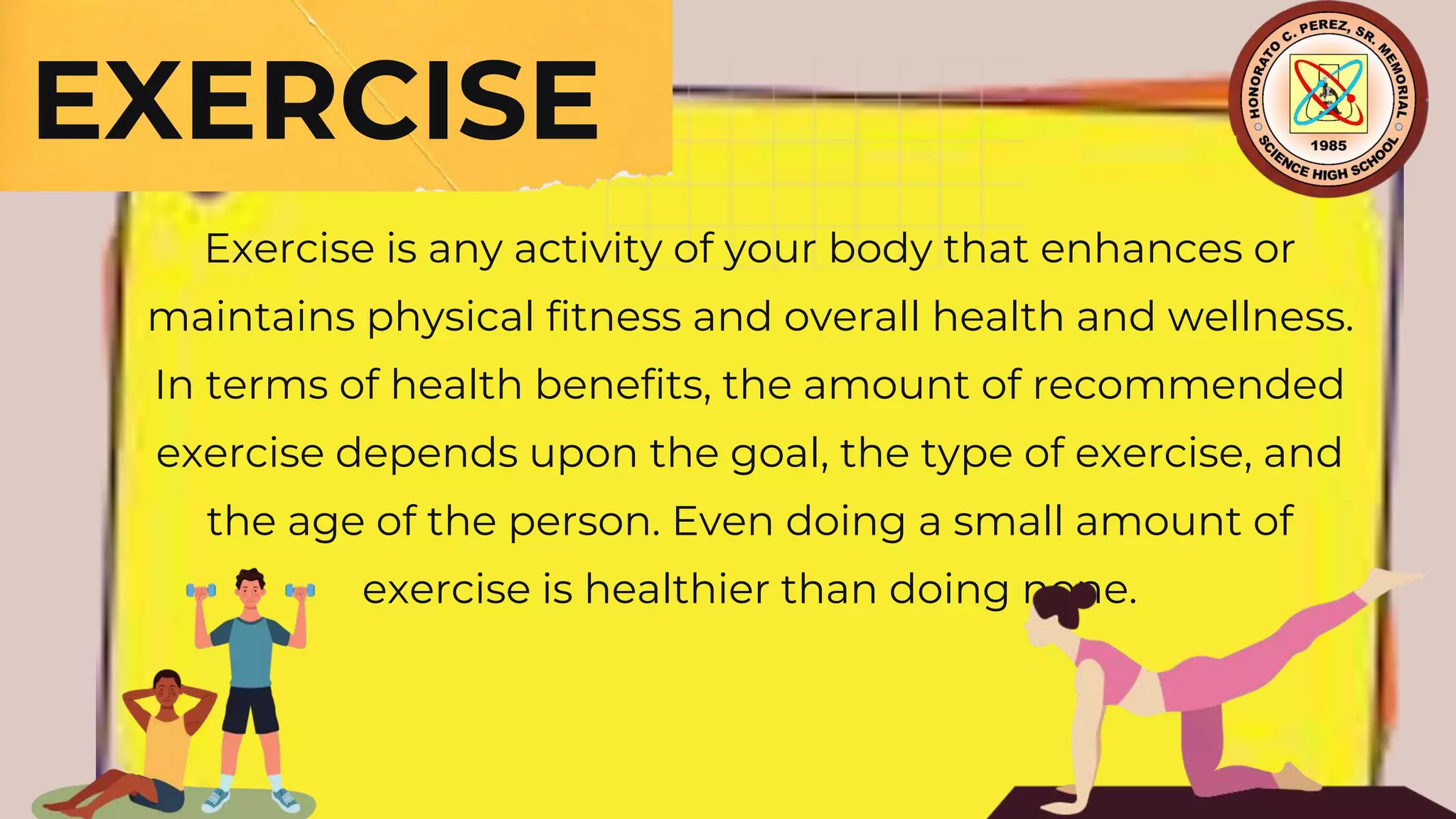
Credit: www.slideshare.net
Enhancing Bone Health
Recreational activities play a key role in keeping bones strong and healthy. Regular movement and exercise help maintain bone density. This reduces the risk of bone diseases. Enjoying fun activities can be a great way to protect your bones as you age.
Preventing Osteoporosis
Osteoporosis makes bones weak and fragile. It can lead to painful breaks and fractures. Physical activities help slow down bone loss. Activities like walking, dancing, or playing sports stimulate bone growth. This keeps bones dense and less likely to break. Starting these activities early can protect bones for life.
Weight-bearing Activities Benefits
Weight-bearing exercises force bones to support body weight. This stress encourages bones to build strength. Examples include jogging, hiking, and playing tennis. These activities improve bone mass and strength. Strong bones help reduce injury risks. Regular weight-bearing exercises also improve balance and coordination.
Increasing Energy Levels
Recreational activities boost energy levels naturally. Moving your body helps increase blood flow. This supports oxygen delivery to your muscles and brain. More oxygen means you feel less tired and more alert. Regular activity changes how your body creates and uses energy. It helps you feel fresh throughout the day. Simple activities can make a big difference.
Combatting Fatigue Through Movement
Exercise fights fatigue by increasing stamina. When you move, your heart pumps stronger. This improves oxygen and nutrient supply to your body. It reduces feelings of tiredness and sluggishness. Even light activities like walking or stretching help. These movements keep your energy steady. They prevent the crash after long sitting or resting.
Daily Activity For Sustained Vitality
Doing activities every day keeps energy levels up. Consistency trains your body to produce more energy. It builds endurance and strengthens muscles. This makes daily tasks easier and less tiring. Aim for at least 30 minutes of activity daily. Choose fun activities like biking, dancing, or swimming. This keeps your body active and your mind sharp.
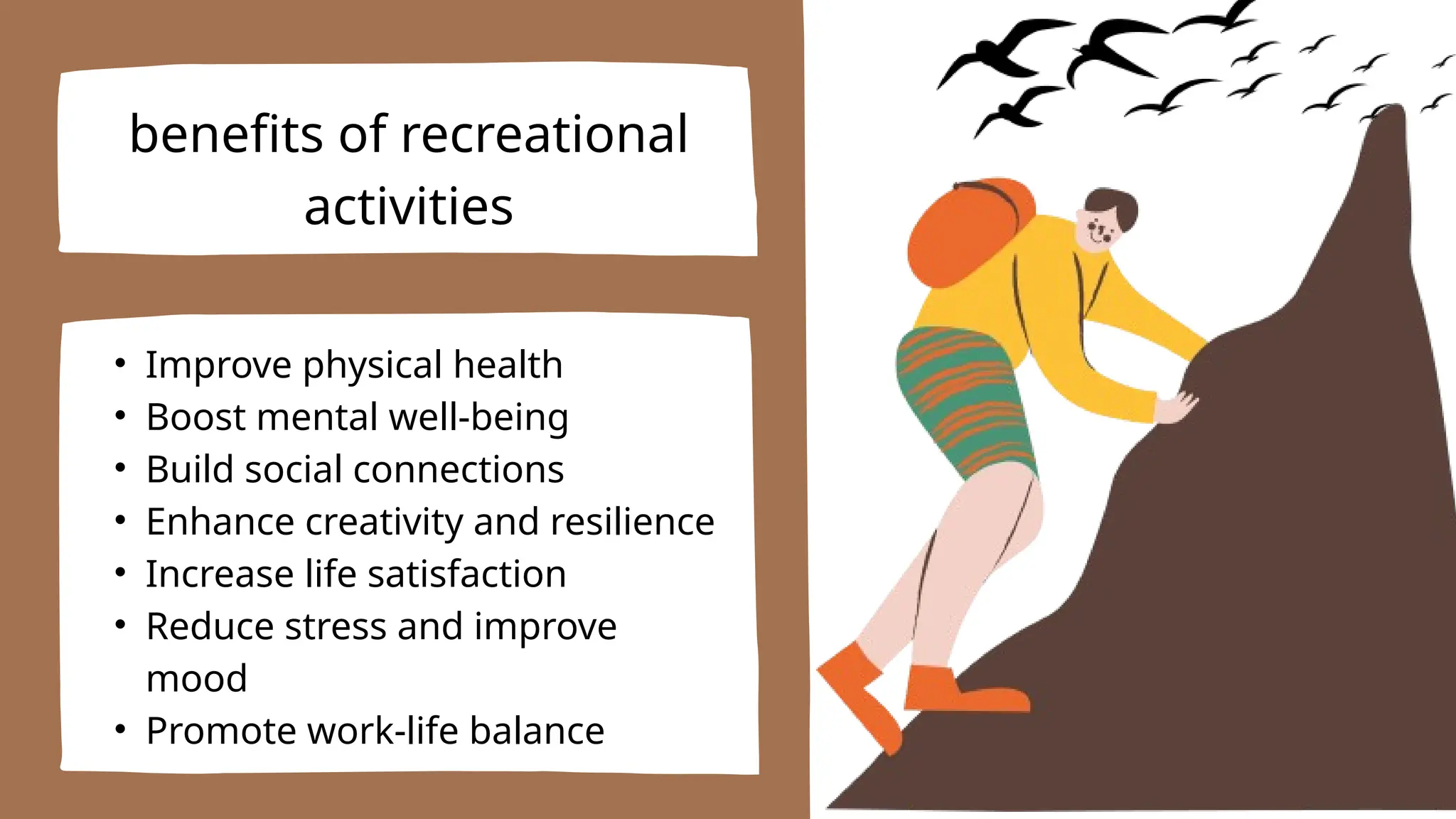
Credit: www.slideshare.net
Improving Sleep Quality
Good sleep helps the body heal and recharge. Recreational activities can help improve sleep quality by making the body tired in a healthy way. This leads to deeper and longer sleep. Better sleep improves mood, focus, and overall health.
Engaging in physical activities during free time supports natural sleep patterns. It helps regulate the body’s internal clock. This means falling asleep faster and waking up less often at night.
Role Of Physical Activity In Sleep
Physical activity raises the heart rate and body temperature. After exercise, the body cools down, signaling it is time to rest. This process helps to fall asleep faster.
Regular movement reduces stress and anxiety, common sleep disruptors. It also increases the time spent in deep sleep, the most restorative stage. Even light activities, like walking or stretching, can make a difference.
Tips For Better Rest With Recreation
Choose activities you enjoy to stay consistent. Avoid intense exercise right before bedtime. Try to finish physical activities at least two hours before sleep.
Spend time outdoors for natural light exposure. This helps reset your sleep cycle. Keep a regular schedule for both exercise and sleep to improve results.
Promoting Mental Wellbeing
Recreational activities do more than just improve your body. They help your mind stay strong and calm. Enjoying physical activities can lift your spirits and clear your thoughts. This section explains how these activities support mental wellbeing.
Reducing Stress Through Exercise
Exercise lowers stress by releasing natural chemicals in the brain. These chemicals help you feel relaxed and less worried. Moving your body gives your mind a break from daily troubles. Regular exercise can reduce anxiety and make stress easier to handle.
Enhancing Mood And Focus
Physical activity boosts mood by increasing serotonin and dopamine levels. These chemicals help you feel happier and more energetic. Exercise also improves focus by increasing blood flow to the brain. You can think more clearly and stay alert after physical activity.
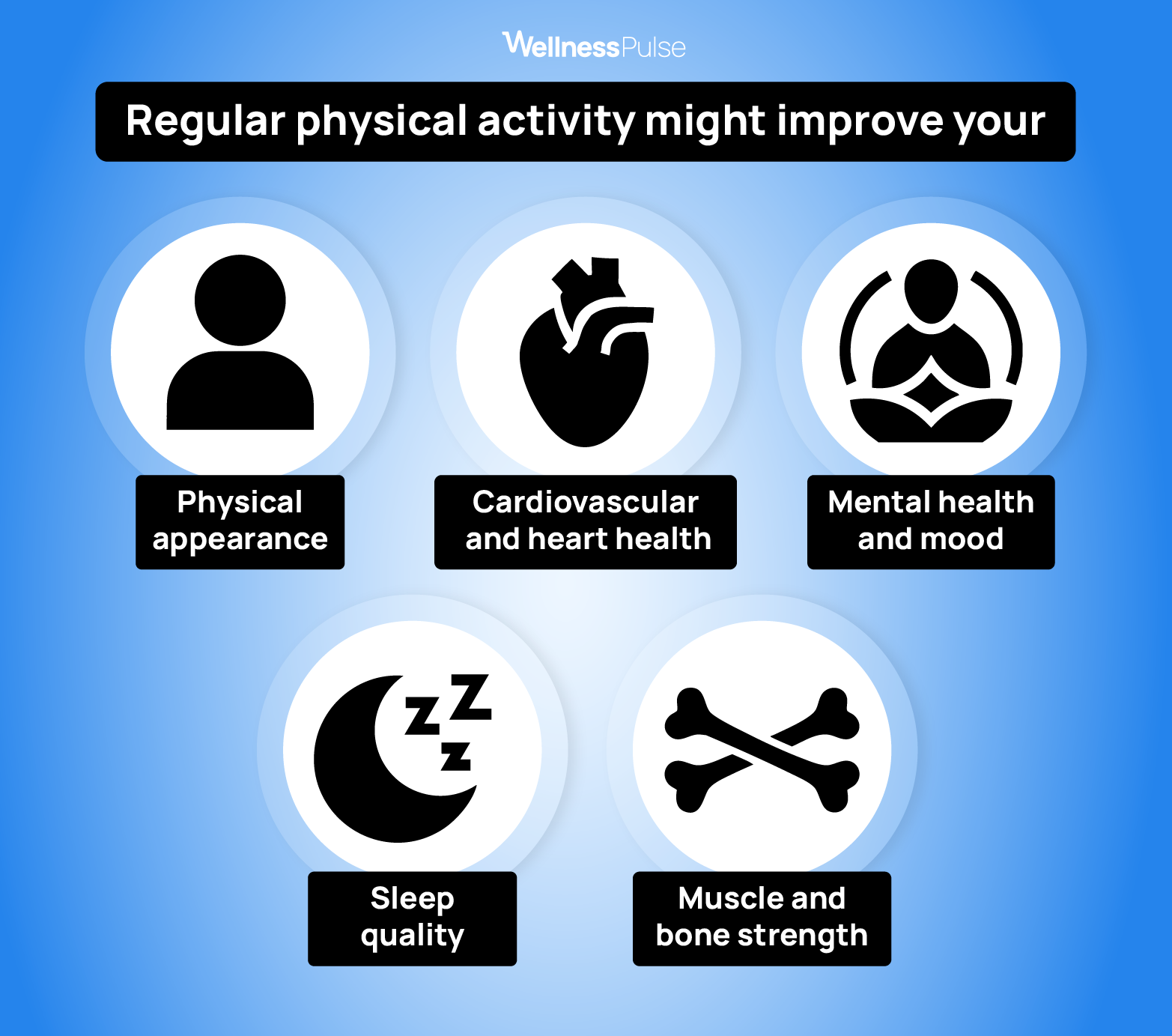
Credit: wellnesspulse.com
Frequently Asked Questions
What Are The Physical Health Benefits Of Recreational Activities?
Recreational activities improve cardiovascular health, increase muscle strength, and boost flexibility. They also enhance coordination and reduce the risk of chronic diseases like diabetes and obesity. Regular participation promotes overall physical fitness and well-being.
How Does Exercise In Recreation Improve Heart Health?
Recreational exercise strengthens the heart muscle and improves blood circulation. It lowers blood pressure, reduces bad cholesterol, and increases good cholesterol. This helps prevent heart disease and improves overall cardiovascular function.
Can Recreational Activities Help With Weight Management?
Yes, recreational activities burn calories and increase metabolism, aiding in weight control. They help reduce body fat and build lean muscle mass. Regular physical activity supports a healthy weight and prevents obesity-related health issues.
Which Recreational Activities Boost Muscle Strength Effectively?
Activities like swimming, hiking, and resistance sports build muscle strength. These activities engage multiple muscle groups and improve endurance. Consistent participation enhances muscle tone and overall physical strength.
Conclusion
Recreational activities help keep your body strong and healthy. They improve heart health, build muscles, and boost energy. Moving regularly also supports better sleep and weight control. These activities make exercise fun, so you stay motivated longer. Enjoying time outside or with friends adds joy to fitness.
Small efforts each day bring lasting benefits. Choose activities you like and feel the difference. Your body will thank you for staying active.

“As the voice behind Radiant Glow Health, we are dedicated to being your ultimate wellness and vitality companion. Our mission is to inspire and guide you on your journey to a healthier and more vibrant life. Join us as we explore holistic health practices and empower you to radiate wellness from within.”
